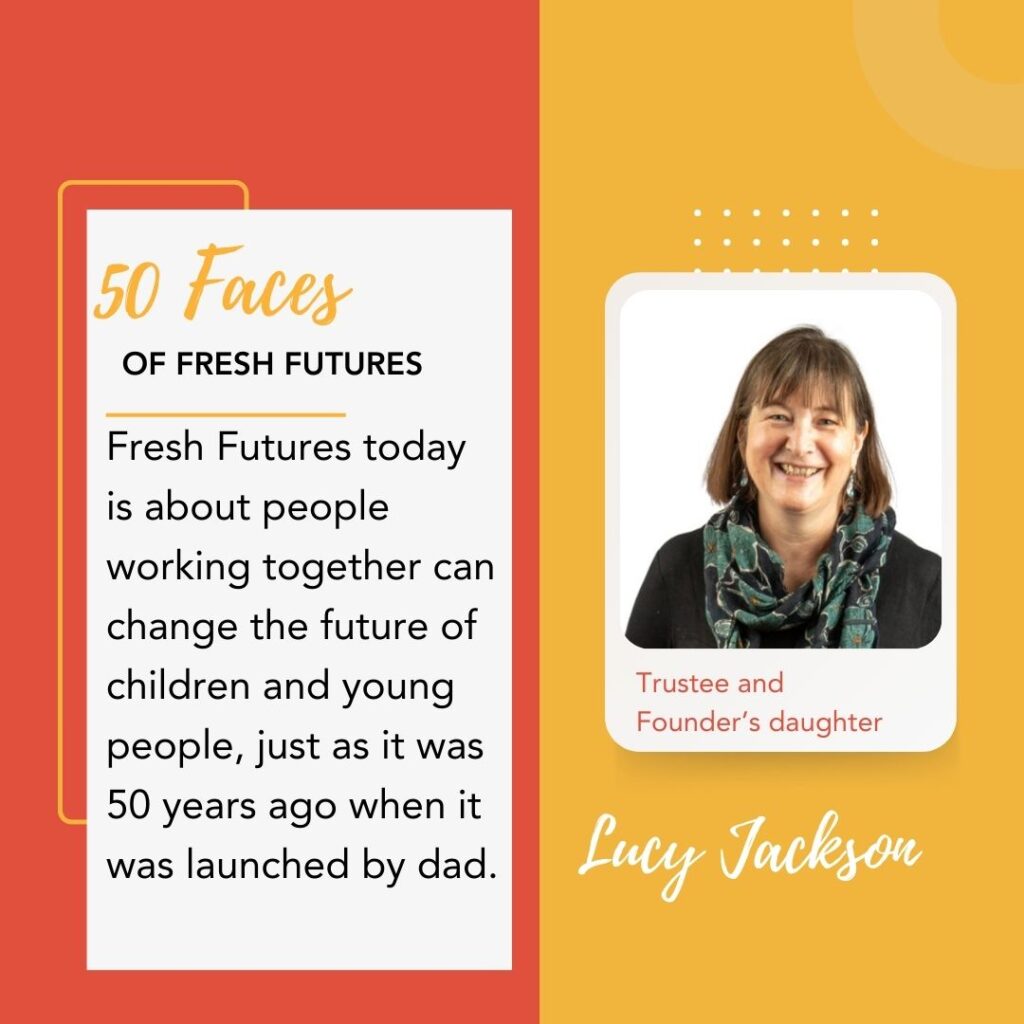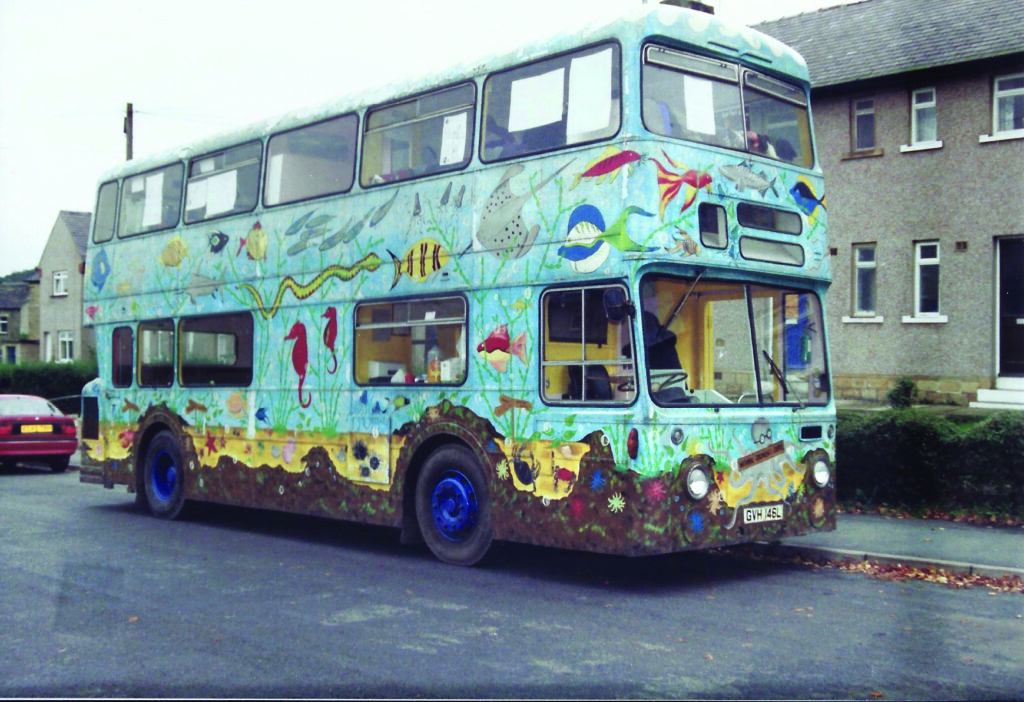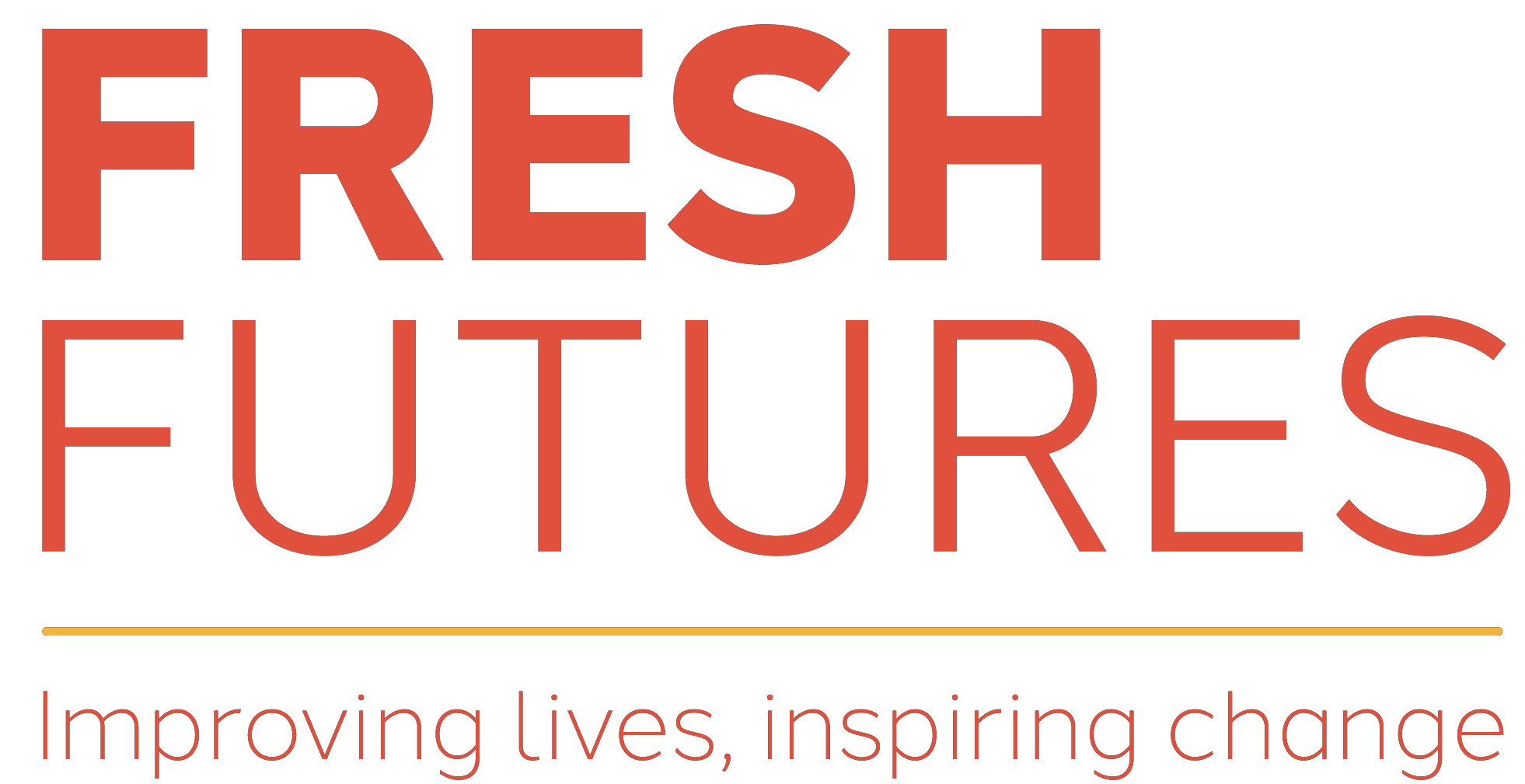As part of our campaign to showcase 50 Faces of Fresh Futures to celebrate our 50th birthday, we’re shining the spotlight on Lucy Jackson.
Brian Jackson founded the charity in 1974 and Lucy is Brian’s daughter. Lucy continues her involvement in the charity to this day – she has recently joined the Board of Trustees at Fresh Futures and also sits on the Income and Partnerships committee.

Tell us about yourself and your involvement in Fresh futures?
In 1974 – when I was 11 – my father (Brian Jackson) founded what was then called ‘The National Children Centre’. We had just moved back to Yorkshire, and being a very proud Yorkshireman he was really keen to develop something in his home town of Huddersfield that would make a difference to the people of the town (especially children under 5) and also have a wider impact on national policy and research.
I have a clear memory of going to busy sessions at Longroyd Bridge (the first home of the charity) and seeing lots of colourful activities, toddlers from all different communities, laughing and running around. I used to help empty vans of resources which dad had managed to convince people to give us. It was always a happy place to pop into, which we seemed to do regularly…
Tell us about your dad, Brian Jackson – why did he establish the charity and what was his vision?
Dad was very passionate about working class communities, and also multicultural communities. He saw the impact that education and wider social, emotional and practical support could make to the future of children from all communities living in poverty. He was also very passionate about Huddersfield (including Huddersfield Town) and Yorkshire (especially the cricket)!
In 1974, when we moved back to Yorkshire from Cambridge, I think he saw an opportunity to bring his passions together. At the time he was working on a study about childminders – the world they lived in and the influence the registered, but mainly unregistered, childminders had on very young children. He was also looking at the lack of support childminders received. For him, supporting childminders was critical to supporting the future development of young children from working class communities.
As with everything dad did, he never wanted to leave it as ‘an interesting research project’ to have published in relevant journals – for him the prize was always making a difference to and seeing action within the lives of children and communities. For him the vision of Yorkshire’s Children’s Centre (as was) was to have somewhere that could both provide both practical support for childminders, parents and others supporting children, and provide somewhere for young children to develop and flourish.
Why do you think Fresh Futures is so important in West Yorkshire?
I don’t think I ever consciously went into my profession of Public Health, because of my dad’s legacy – but for me my public health values, beliefs and ethics are exactly why Fresh Futures is so important today (as much as it was 50 years ago) to the present and future communities of West Yorkshire.
Child poverty is at its highest level for over 20 years. Families are experiencing a range of issues from poverty to housing crisis, and facing increased physical and mental health issues. All of which impact significantly on future generations. There is a need for practical and emotional support for families, children and young people to support them to reach their full potential which Fresh Futures’ can provide.
The Charity has been established for 50 years, what are the most significant events from your perspective?
Securing Longroyd Bridge was obviously the first significant event. The play bus and taking the vision out into the streets was significant – the charity’s focus of going out to communities is high in my memory in the early days.
I remember as things developed, and as I became a teenager, dad also brought support for young people more into focus.
However, once we moved to Bristol and my visits to Yorkshire became less I lost touch with what was happening at the charity. – although it was a household joke of how often there were still calls between dad and Hazel (the CEO at the time). I had just completed my A levels and was at a David Bowie concert the day that dad and my younger brother ran the charity race in Huddersfield to raise money for the charity . It was only when I returned from the concert that I received the phone call to say he had collapsed on the run and died.
From there, my connection to the charity over the next years was intermittent – I remember being invited to the opening of Brian Jackson Centre (now House) and feeling really proud of dad’s lasting legacy. I also went to memorial lectures the charity organised each year with Huddersfield Polytechnic, aimed at keeping the cause in the national eye with high profile speakers.
The launching of the Charity’s first alternative provision college for young people was for me the next significant event that I became aware of. Thinking back to the days of the ‘Youth Opportunities Programme ‘ – this felt very much in line with dad’s vision. Again my own life took over with 3 young children and a career, so it wasn’t until a few years ago when social media connected me to another walk (rather than run) in aid of the charity that I once more became aware of the brilliant work happening 50 years later. Although these events are about the physical buildings – its dad’s ethos has remained which for me is most significant – Fresh Futures today is about people working together can change the future of children and young people, just as it was 50 years ago when it was launched by dad.

Lucy has recently starred in a documentary aired on YouTube, interviewing famous sociologists wives to better understand the support they gave to their husbands work over the years, you can watch it here.
